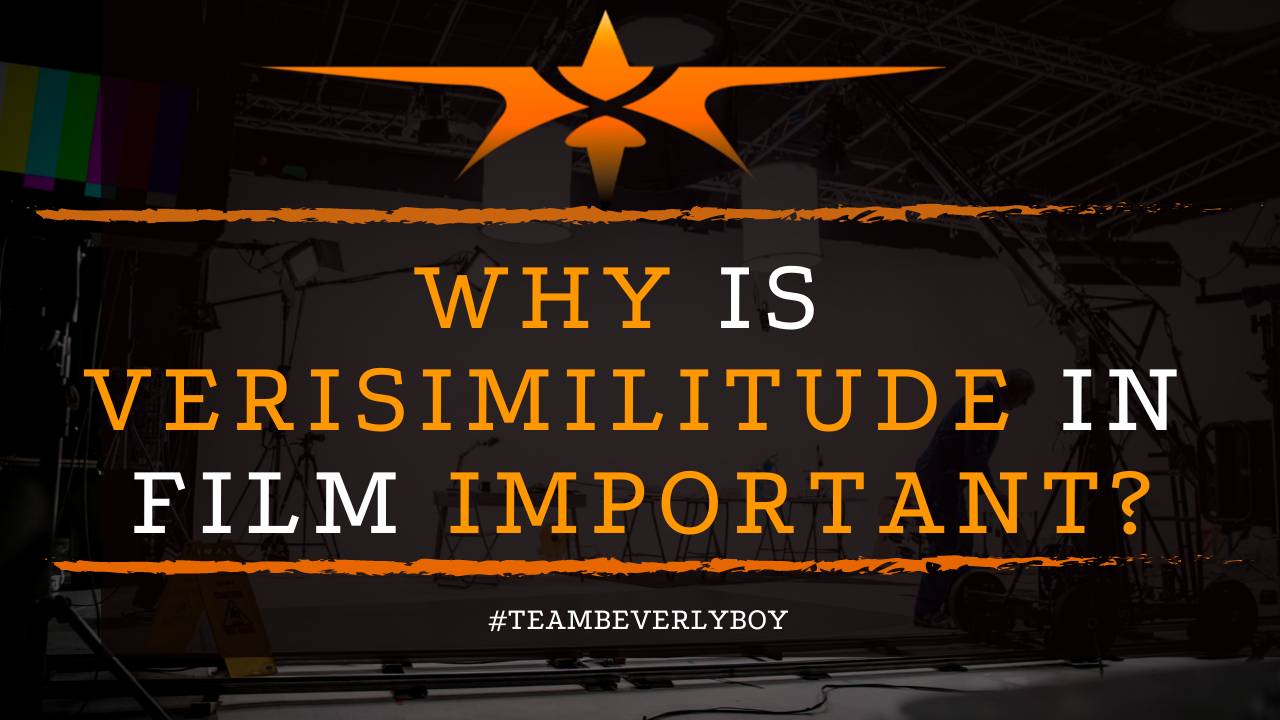
Why is Verisimilitude in Film Important?
If you’re new to the film industry, you may not have ever heard the technical term verisimilitude just yet. But you most likely will. Verisimilitude in film is a technical term which has a powerful meaning that can be challenging to fully understand at first, but with some focus and a bit of assistance you can come to terms with what this particular phrase means and how it applies to filmmaking.

What is Verisimilitude in Film?
Verisimilitude in film represents a story that is realistic and which has details, characters, and subjects which are very similar to those of real life or are otherwise convincing in some aspect.
A film is said to have verisimilitude if it has aspects that are similar to real life and which are easy to connect to or otherwise find plausible within the context of the story.
Whenever characters of a film, the individual subjects of the film, the details of the story and other elements are plausible we say the film has verisimilitude which is incredibly important.
The nuances of a character are convincing, the aspects of life fit together for the story, and the overall environment that the story takes place in all fit together for a level of believability when there is verisimilitude.
Why is Verisimilitude in Film Important?

Verisimilitude is important in filmmaking because this is the difference in whether or not a character, environment, and the overall story that is created is “plausible” or not.
Or whether it’s believable, or not. Verisimilitude in film shows that the screenwriter knows what they’re doing and how to create powerful connections with the audience.
By creating characters which exist in a fantasy world that is equally believable and which the audience can connect with.
Believability
If you’re wondering why it’s so important to write a character and a world that is plausible and believable, verisimilitude is important to you.
Verisimilitude is important because it represents exactly how a story remains convincing and conceivable. Despite the various twists and turns that a story can take.
When there is verisimilitude in film there are boundaries that show the writer is able to aggregate audience response without losing the overall connection.
That Wasn’t Realistic…
There’s nothing worse than when someone says that. It’s like, a punch in the face for a filmmaker. But why? It’s film, of course it’s unrealistic.
So what’s so bad about someone saying, “That wasn’t realistic” about the story? Verisimilitude!
For the Film
Of course much of what is realistic in the make-believe world created for the purpose of the film is not likely to stand up to the everyday judgement of people making connections to today’s world.
But that doesn’t mean that when someone says “that wasn’t realistic” they mean it wasn’t realistic entirely. They generally mean that it wasn’t realistic for the film. And that’s a problem!
Think About It
Verisimilitude represents what is realistic for the world created by the filmmaker. And it’s important for the characters, scenes, and other elements within the story to have verisimilitude.
So, the next time you hear someone say “that wasn’t realistic” think about the verisimilitude in film!
How important it is that the characters and other elements of the story that is created maintain a level of realism with one another as compared to other elements.
How is Verisimilitude Enhanced in Film
If you’re wondering what you can do to make sure that you’re getting the most out of the verisimilitude that you incorporate into your films.
And that your audience always believes that the environment, plot and setting that you create is at least somewhat believable. You’re going to have to focus some time on verisimilitude.
Enhancing the verisimilitude in film is a process that requires:
- Presenting particular facts about the story and the surroundings of the story to ensure the audience understands the setting and is present in the appropriate environment.
- Keeping timeframes and other elements consistent.
- Engaging specific timelines, contexts and other important elements in the film.
- Helping the audience to feel confident what they see.
- Immersing the audience in the story and keeping consistency.
Consider This
For example, a film might present particular facts that are relative to the story. They might say that the astronauts can travel from Earth to the Moon in 20 hours.
If that’s the case, but the film then shows the astronauts traveling from Earth to the Moon in 4 hours.
You have created an unrealistic context that is going to have your audience thrown off by the timing change and the verisimilitude.
It cannot possibly go from 20 hours to 4 hours to do something, that just doesn’t make sense.
The Takeaway
As you can see, verisimilitude represents the key elements of importance in which a film will either make sense, or it won’t.
When verisimilitude is not focused on? And they’re are elements of a film’s timeline or other areas. Such as character elements!
Or elements of the plot that don’t make sense. The verisimilitude doesn’t make appropriate sense and the film will be unbelievable. This is why verisimilitude in film is important.


